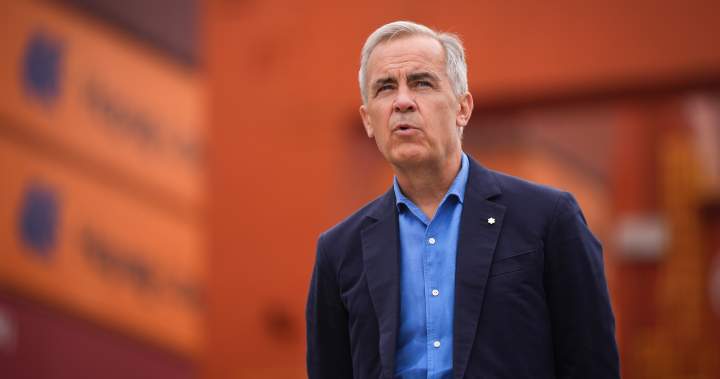Prime Minister Mark Carney on Tuesday unveiled his plan to address the “costly uncertainty” that Canada’s lumber industry faces because of its dependence on the U.S.

Speaking at a lumber mill in British Columbia on Wednesday, Carney said certain sectors are going to face the brunt of U.S. President Donald Trump’s trade war against Canada.
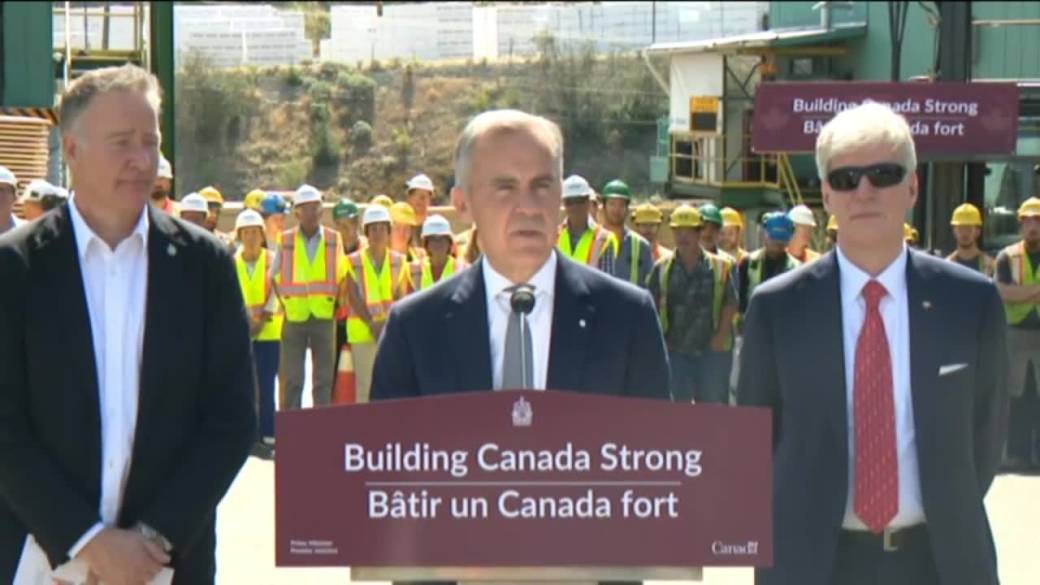
2:23
‘Canada does not dump lumber’ into US: Carney defends industry while announcing plan amid trade war
These sectors include autos, steel, aluminum, copper, pharmaceuticals, semiconductors and softwood lumber, Carney said.
Story continues below advertisement
Carney said two-thirds of Canadian lumber production and nearly 90 per cent of Canadian lumber exports currently go to the United States.
“This dependence creates costly uncertainty. It weakens our industry’s ability to weather downturns. It makes lumber more expensive for builders at home, and it forgoes enormous opportunities in fast-growing markets around the world,” he said.
The Canadian government will provide up to $700 million in loan guarantees to companies that need cash to deal with the immediate pressures of the trade war, he said.
“This will ensure forestry companies of all sizes have the competitive financing they need to maintain and restructure their operations during this period of profound transformation,” he said.
Ottawa will also provide $500 million, largely in grants and contributions, to “make the softwood lumber industry more competitive for the long-term.” He added that Canada will also prioritize the use of Canadian lumber in major projects.
Story continues below advertisement
Carney said Canada’s aim to build 500,000 new houses would help give a boost to Canadian softwood lumber.
“That alone could double the use of Canadian softwood lumber in new residential construction – an increase of almost two billion board feet – and double demand for structural panels – an increase of nearly a billion square feet,” he said.

Get daily National news
Get the day’s top news, political, economic, and current affairs headlines, delivered to your inbox once a day.
In addition to feeding local demand, Carney said Canada would also seek more foreign markets for its lumber, including in Asia.
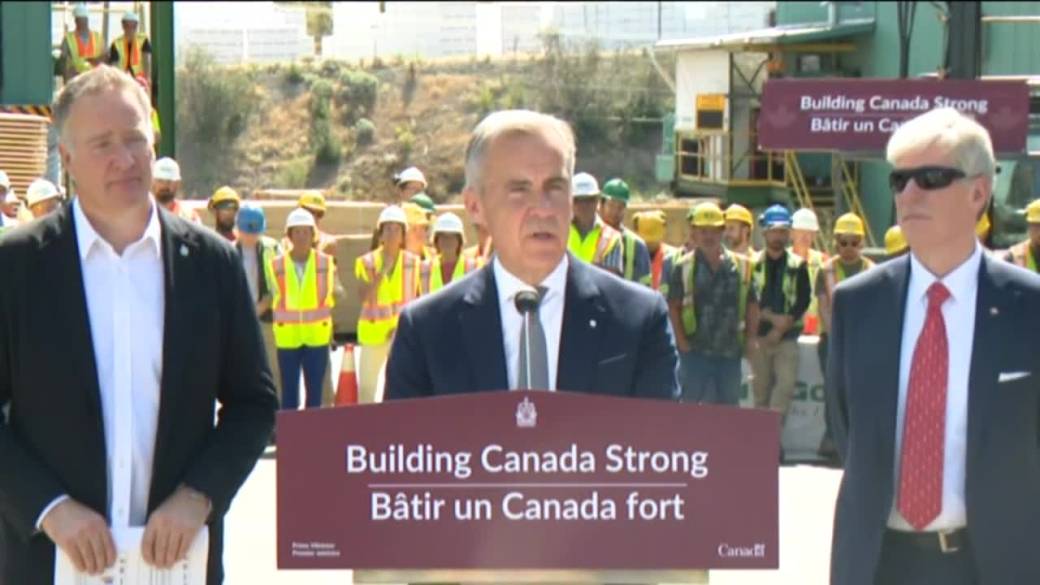
0:37
Carney says amount of fentanyl entering the US from Canada amounts to a ’rounding error’ compared to other sources
“By the end of this decade, Canada could capture a significant share up of the global bioeconomy market, up to $150 billion to $240 billion,” he said.
Carney said the government would also launch a reskilling program for lumber workers who are affected by layoffs during this trade war.
Story continues below advertisement
“For the forest products sector alone, we will provide $50 million in upskilling and reskilling investments, as well as new support for over 6,000 affected lumber workers,” he said.
That comes as Foreign Affairs Minister Anita Anand and Finance Minister François-Philippe Champagne head to Mexico to meet with Mexican President Claudia Sheinbaum on their two-day visit.
They will also meet with Canadian and Mexican business leaders, “including key players supporting North America’s integrated economy, trade infrastructure and supply chains,” Anand’s office said.
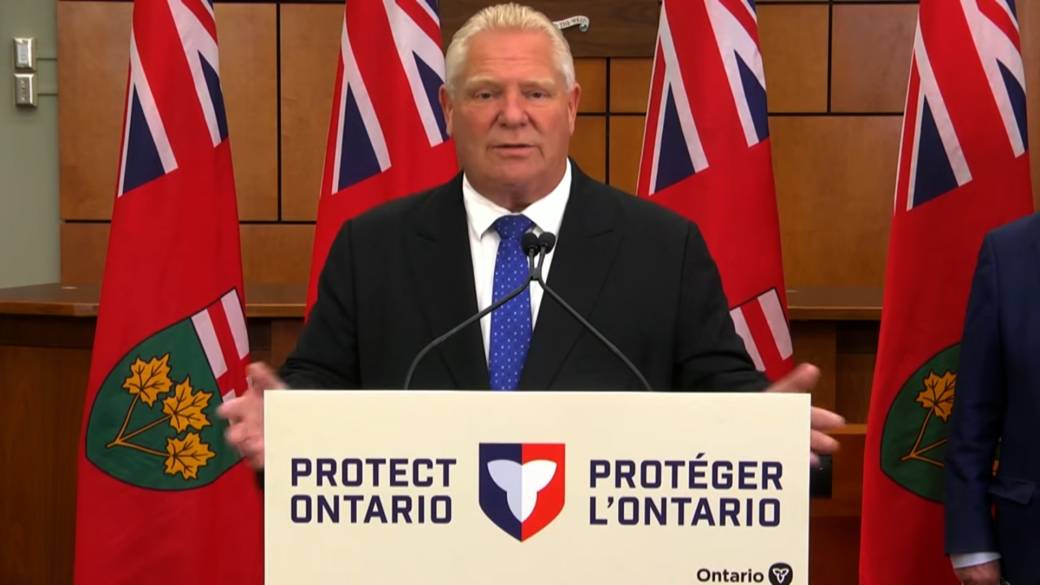
3:56
Ford tells Carney not to ‘roll over’ to Trump on U.S.-Canada trade deal
Carney will speak to Trump ‘when it makes sense’
Trending Now

U.S. may ask tourist, business visa applicants to post US$15,000 bond

Air Canada flight attendants vote overwhelmingly in favour of strike action
Carney was asked whether his government plans to retaliate against the Trump administration’s latest escalation of raising tariffs on Canada from 25 per cent to 35 per cent.
Story continues below advertisement
“We are also very cognizant that in about nine months from now, the first review of USMCA, — or CUSMA as we call it — will begin between the three parties. So, there’s a bigger picture there,” he said.
“We have always said that we will apply tariffs where they had the maximum impact in the United States and a minimum impact in Canada,” he added.
When asked if he and Trump had spoken recently, Carney said, “I haven’t spoken to the president in recent days. We’ll speak when it makes sense.”
Conservative Leader Pierre Poilievre criticized the Liberal government for presiding over years of increased U.S. softwood lumber duties and accused Carney of not fighting back.
“Mark Carney promised us that he would put ‘elbows up,’ that he would handle Trump, and that he would negotiate a win by ending the tariffs. He’s broken all of those promises,” he told reporters in Drumheller, Alta.
“Under Mark Carney’s leadership, it has been elbows down and tariffs up.”
He said Conservatives’ offer to help Carney and the Liberal government secure a “real deal” in ending the U.S. tariffs “remains open,” but added the party will push for renewed domestic manufacturing and homebuilding that utilizes Canadian lumber and other industries.
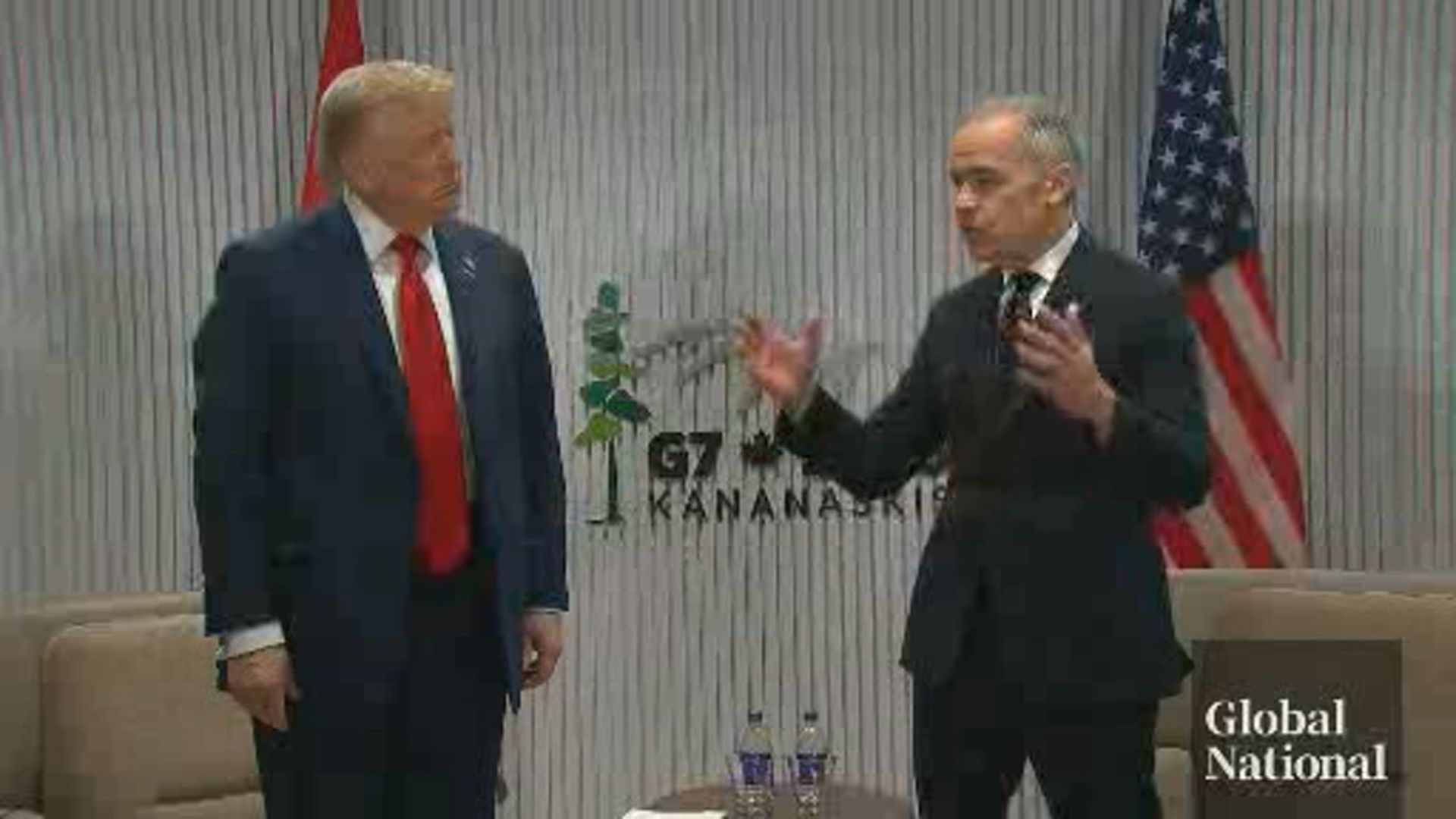
2:17
Carney ‘disappointed’ in Trump’s 35% tariff on Canada
On Friday, after the U.S.-imposed target date for a trade deal between Canada and the U.S. expired, Trump increased the tariffs on Canadian goods from 25 per cent to 35 per cent.
Story continues below advertisement
Carney said he was “disappointed” by Trump’s move.
“While the Canadian government is disappointed by this action, we remain committed to CUSMA, which is the world’s second-largest free trade agreement by trading volume,” Carney wrote in a letter posted on X early Friday.
Some in Canada have called for further retaliation.
“Canada shouldn’t settle for anything less than the right deal. Now is not the time to roll over. We need to stand our ground,” Ontario Premier Doug Ford said in a statement.
“The federal government needs to hit back with a 50 per cent tariff on U.S. steel and aluminum.”
Nova Scotia Premier Tim Houston indicated that his province is considering retaliatory measures of its own.
“Our government will continue its part to support our province and the rest of Canada. Make no mistake: at the provincial level, we will not hesitate to implement retaliatory measures again if they are needed,” Houston said in a statement.
—With files from Global’s Sean Boynton
More on Canada
More videos

